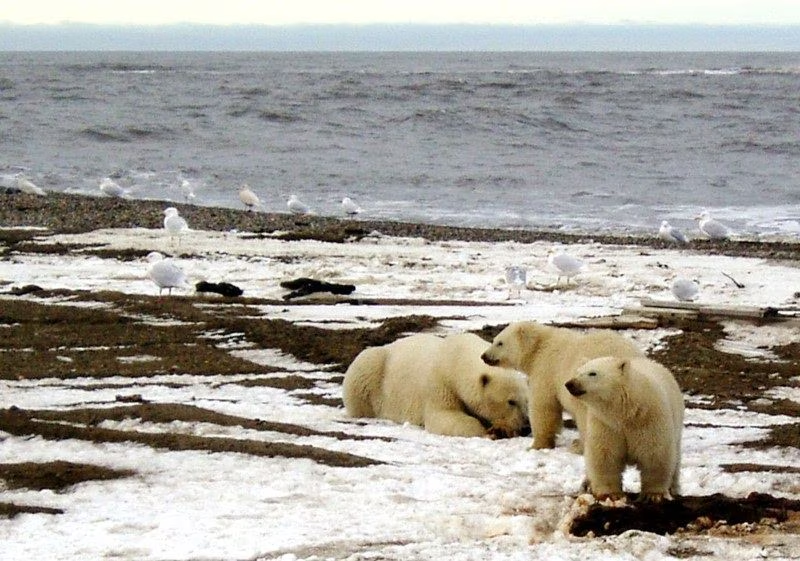In a significant move towards fulfilling his climate commitments, President Joe Biden's administration has announced the cancellation of oil and gas leases in Alaska's Arctic National Wildlife Refuge (ANWR), which were issued during the waning days of former President Donald Trump's tenure. The decision has ignited a fierce debate between environmentalists celebrating the move and Alaskan officials advocating for economic growth through drilling in the region.

The U.S. Interior Department made the announcement on September 6, citing the urgent need to protect the 19.6 mn-acre ANWR, a vital habitat for polar bears, caribou, and other wildlife, which is experiencing the effects of climate change at an accelerated rate.
"As the climate crisis warms the Arctic more than twice as fast as the rest of the world, we have a responsibility to protect this treasured region for all ages," President Biden stated.
The Trump administration had granted the Alaska Industrial Development and Export Authority (AIDEA) seven leases merely a day before President Biden's inauguration, a move that environmentalists had strongly opposed. The cancellation of these leases marks a shift in the current administration's stance on fossil fuel extraction in environmentally sensitive areas.
Environmentalists praised the decision, viewing it as a step towards prioritizing conservation and addressing climate change. However, the move was met with criticism from Senator Dan Sullivan, a Republican from Alaska, who argued that drilling in ANWR was crucial for job creation and state revenue.
In addition to the ANWR decision, the Interior Department also declared a ban on new leasing across more than 10 mn acres in the National Petroleum Reserve in Alaska, a vast area on the state's North Slope, known as the largest undisturbed public land in the United States.
These actions represent a broader effort by the Biden administration to curb oil and gas activities on public lands as part of their commitment to combat climate change. However, it poses a challenge for the administration as it attempts to balance environmental conservation with the need to ensure a stable domestic energy supply.
Earlier this year, the government approved a $7 bn ConocoPhillips drilling project in Alaska, which drew international criticism from the United Nations, urging countries to accelerate the transition away from fossil fuels.
AIDEA, determined to protect its interests, has announced plans to challenge the lease cancellations in court, asserting that the Interior Department's actions lack legal basis.
"The latest action by the Department of the Interior shows arbitrary disregard for Federal law, based on campaign trail rhetoric. Campaign promises are not enough to justify this agency action," AIDEA stated.
The Interior Department, however, maintains that a new environmental review found significant flaws in the analysis underlying the 2021 lease sale, providing Secretary Deb Haaland with the authority to cancel the leases.
This decision has triggered mixed reactions from indigenous groups in Alaska. While the Voice of the Arctic Inupiat expressed disappointment, stating it went against the region's wishes and self-determination, the Gwich'in Steering Committee applauded the action, highlighting the threat oil and gas development posed to their way of life.
Alaska's oil production has seen a significant decline over the past three decades, with the state currently producing less than 500,000 barrels per day of crude, down from over 2mn bpd in 1988, according to government figures. As President Biden's administration continues to navigate the complex intersection of environmental conservation and economic interests, the debate over Alaska's oil and gas resources is far from over.
Follow Daryo's official Instagram and Twitter pages to keep current on world news.
Comments (0)